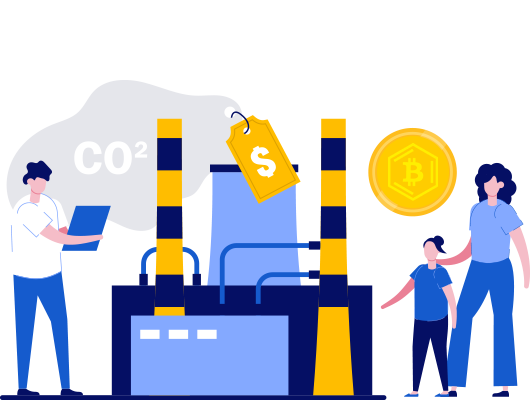Carbon Credits: Mitigating the Impact on Climate Change
As individuals and companies look for new ways and tools to manage the impact on climate change, carbon credits are getting popular as they help the fossil fuel industry become more efficient.
But, what exactly is a carbon credit? Well, it is a tradeable permit or certificate that gives an individual or company the right to emit 1 ton of carbon dioxide or an equivalent of another greenhouse gas.
The present carbon offset market is rife with inefficiencies. This is because credits are sold in bulk to enterprises, and it results in barriers for smaller groups or individuals. The latter thus struggles to make that environmental impact. But, with blockchain in the picture, small businesses are also matching the levels of tech giants and contributing their bit.

Prolitus’s expertise in technology and IT management let us be your trusted guide along your blockchain-based carbon credit platform development journey. Our flexible approach, mission-driven solutions, and accelerated deployment help you tread faster and gain a solid competitive advantage.
The transparent nature of blockchain is highly beneficial for trading carbon credits while aggregating small buyers for carbon offset projects.
The immutable and highly- secured distributed ledger lets us issue reliably and track carbon credits. Furthermore, public blockchains are easily accessible by small and medium-sized enterprises. This, in turn, reduces the entry threshold for the carbon trading market.




